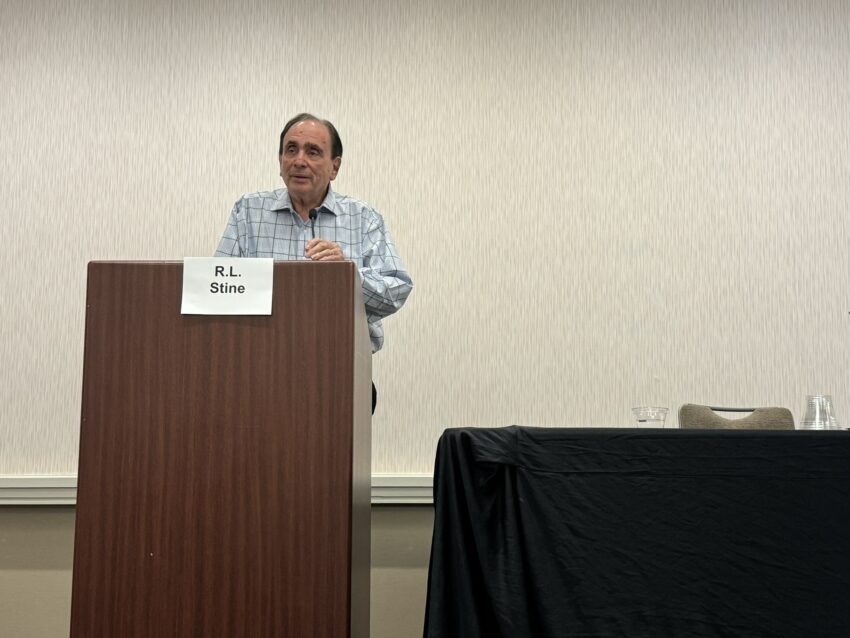Going to a conference can feel like living inside a space station. You rarely leave the structure except for research or necessity. There’s always more that should be done, and never enough time in which to do it. And – if you’ve gone to the right conference – you feel as though you are among Your People, perhaps for the very first time.
I’m not going to run down each and every day of ThrillerFest, or how to navigate the neutral-coloured halls of the Sheraton Times Square. I will, however, pass along some tips and highlights from some of the panels and presentations – heavily skewed towards those where I had my notebook to hand. Any errors and omissions are my fault alone.
Wednesday morning. Conference begins – CraftFest. Focused on the craft of writing novels. First, go down to registration and pick up my conference package including a ton of books. Leave enough time to get back to the room to drop the books off.
Down to the Library Bar, which has been turned into a coffee shop / grab and go for the morning. Get a yoghurt parfait and a grande latte with an extra shot. Pay $15 for the privilege but still be grateful that I’m not paying $35 for a breakfast in the restaurant. Line is long but usually moves quickly.
Then off to the first presentation – Robert Dugoni, plots for page turners.

(Where possible I’ve used photos I took at ThrillerFest – in cases where the photo did not turn out, I will be using stock author photos, such as the one above.)
“Write that first draft without any expectation of someone reading it – give yourself space to figure out the story.”
“Write to entertain! Not to preach.”
“Don’t give a biography when a character enters the room.”
“A story is a journey of the protagonist. The physical journey is the plot, the emotional journey is the character arc.”
“In every scene, give your character a goal and share it with the reader.”
Next, off to Karen Dionne – Finding your voice
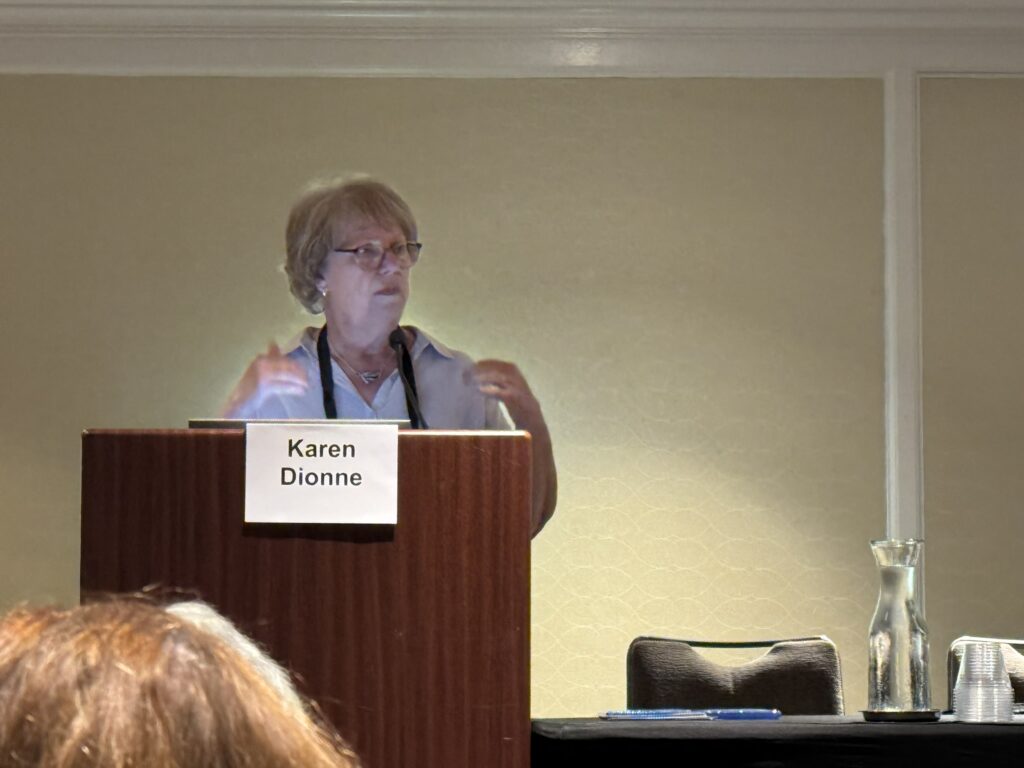
Karen started writing in 1999. Marsh King’s Daughter – her breakout hit – came out in 2017.
“Don’t give up – it takes time.”
“If I’m bored [when writing], readers are going to pick up on that.”
“Don’t chase trends, don’t be afraid to branch out.”
“No writing is ever wasted.”
S. A. Cosby – Dialogue
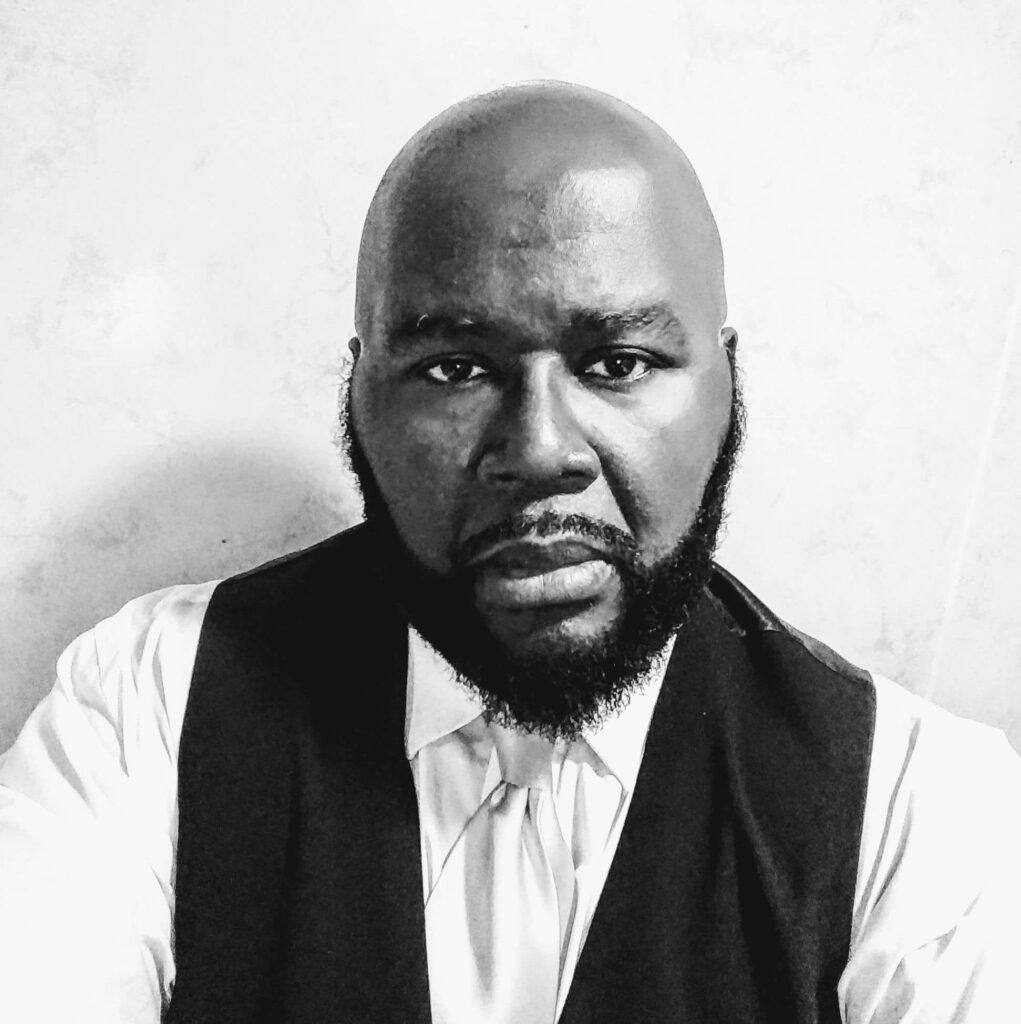
Dialogue serves multiple functions – not just expository, reveals character.
Think of building a house – characters create the foundation, dialogue makes up the walls.
“It’s not just what a character says, but how they say it.”
“You can write anything so long as the story’s good.”
“We’re all world building – don’t break the dream.”
“Want to hear great dialogue? Go to a bar and be nosy.”
Shawn will write biographies for his characters and gradually introduce those elements into his stories – left handed, afraid of snakes, etc.
R. L. Stein
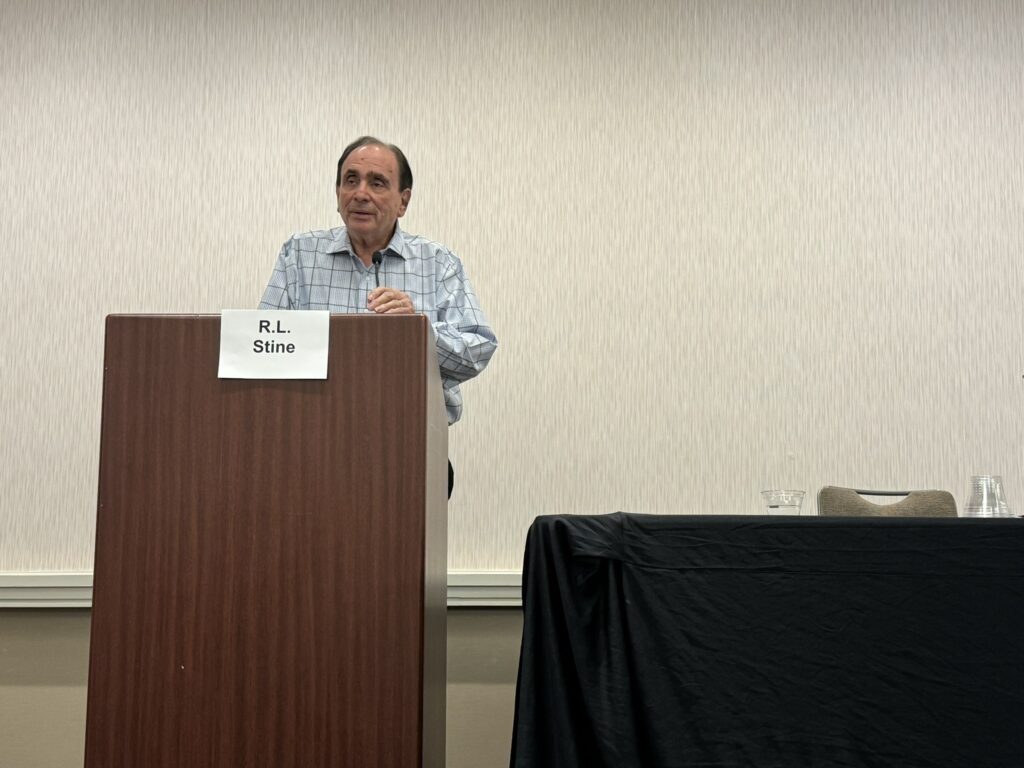
R. L. (Bob) Stein is always a highlight for any of these conferences. Here’s just a small snippet of some of his many hilarious stories and words of wisdom.
Teacher says to Bob, “Can I have my picture taken with you? The kids all think you’re dead.”
Worst advice he ever received? From his mother – “Stop typing and go outside.”
Best advice? From an editor. “More lore.” More detail, story, atmosphere, anecdotes.
“Don’t listen when people tell you writing is hard.” Think of it as fun.
“I’ve written 300 books – not a single word from my heart.”
“Write for an audience, not for yourself.”
Be careful with technology. “Cell phones have ruined everything.”
Everyone asks him where he gets his ideas. Bob believes you can’t tell people how to get ideas – you just have to be open to them.
Bob writes 2,000 words everyday from 10 am to 1 pm. Outlines every book first.
“Ages 7 to 11 is the best audience.” The last time they’ll be enthusiastic. They’ll turn 12, and then they’ll have to be cool.
“I start with a title first, and then I have to know the ending.”
When did you first know you were famous? Bob was on his way to a book signing, and he was stuck in traffic. He hates being late. He started looking around trying to figure out where the traffic was coming from, and saw that the cars were full of kids. He was stuck in his own traffic jam.
Greg Hurwitz
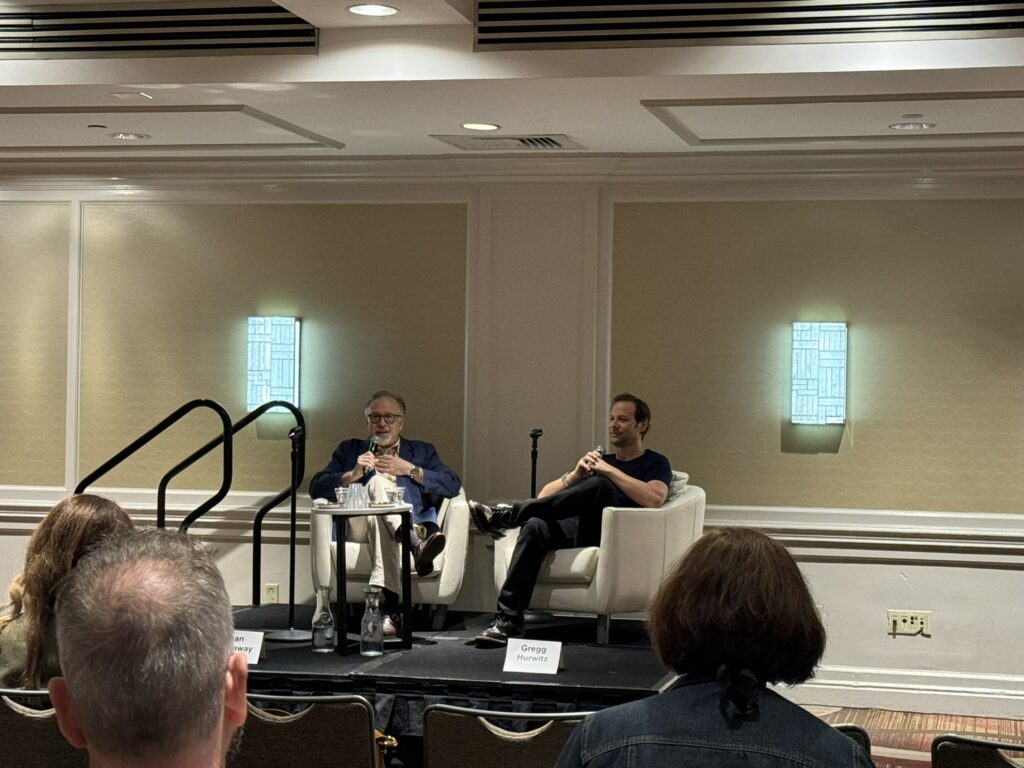
Difference between a novel and a screenplay? “In a novel, you’re doing everything. A screenplay is an invitation to collaborate [with actors, directors, producers, etc.].”
Greg has written 9 or 10 scripts – sold 4, and 2 were made into films.
“You never say it’s greenlit until you’re standing on the set on day 2.”
“If you follow your own muse and fail, at least you’ve been true to yourself.”
Boyd Morrison – Fast-paced storytelling
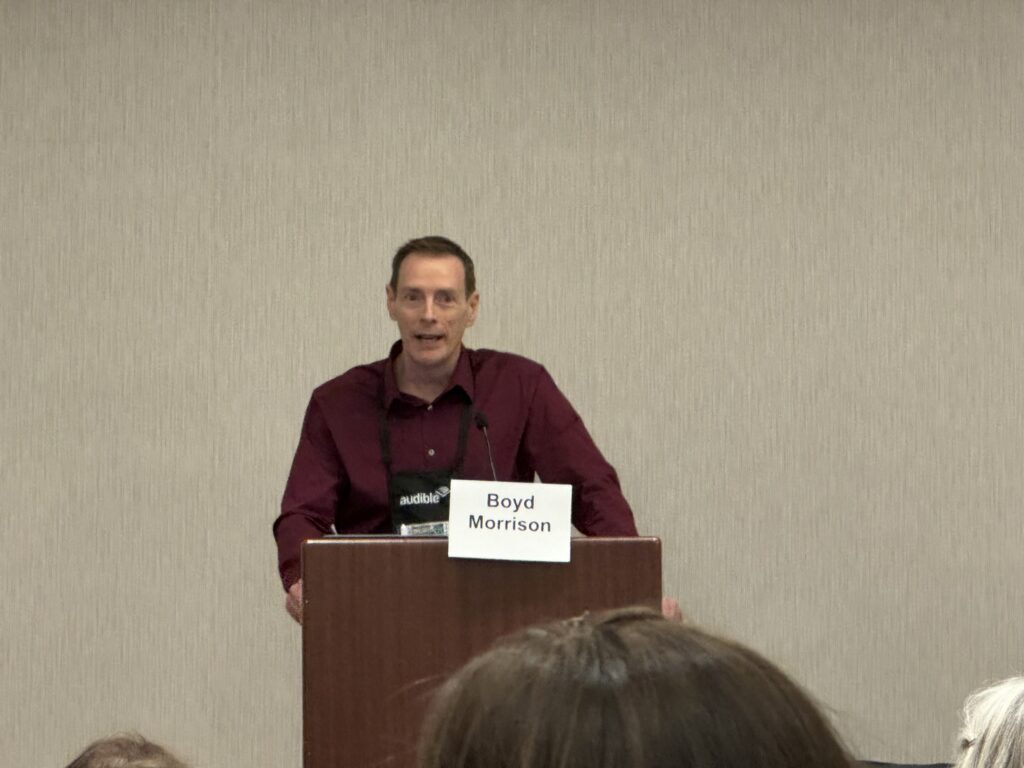
“Start as close to the end of the book as possible.”
“Surprise is a bomb going off. Suspense is watching a ticking clock beneath the protagonists.”
“The protagonist needs to face overwhelming odds, and their flaws should impede their progress.”
“Protagonist has to save themselves – not be saved by the calvary.”
“If the ending doesn’t deliver, that’s what the reader remembers.”
Thriller Award Nominees
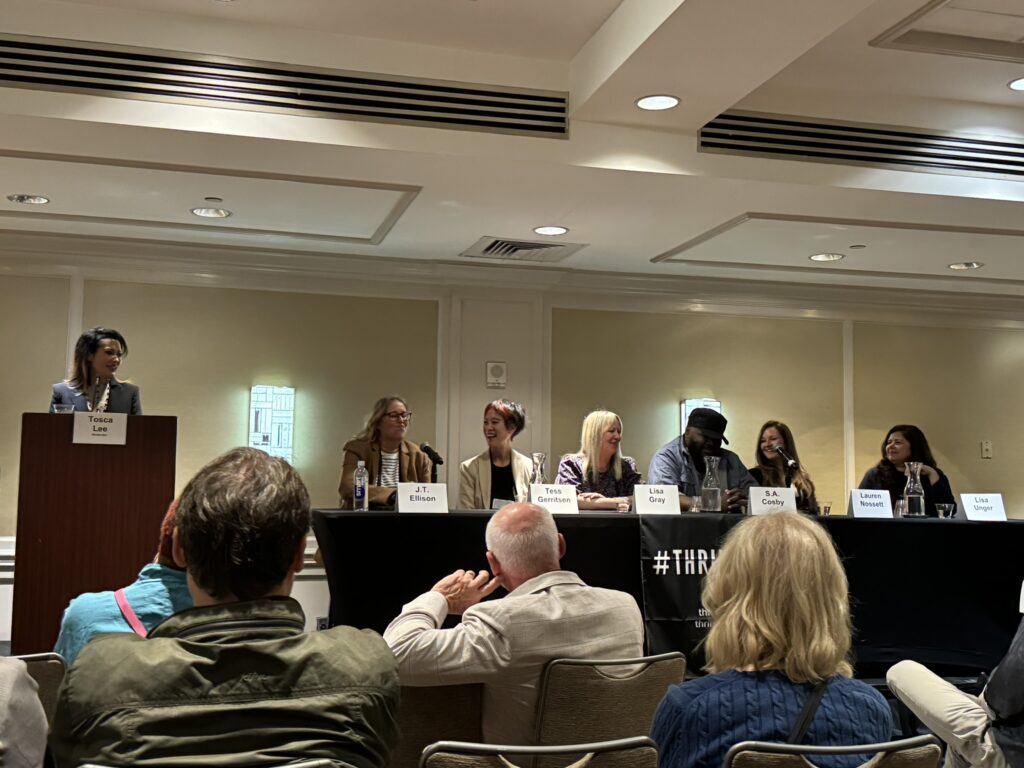
What keeps you going? “Spite.” S. A. Cosby. Shawn had a doubting relative, so he had an earnings statement blown up at the local print shop and gave it to them as a gift.
Lisa Unger: “Focus on the writing. It’s never about anything else.
J. T. Ellison: “There are no rules except what you create page by page… you need to write the best book you can, and you need to meet your deadlines.”
Tess Gerritson: “The best class for a writer is the book store.”
“I don’t care if I don’t sell my book… this character wants to come out.”
Tess had 3 rejected novels before she sold her first romance.
Best advice? “Always pack more underwear than you need when on tour.”
International Settings
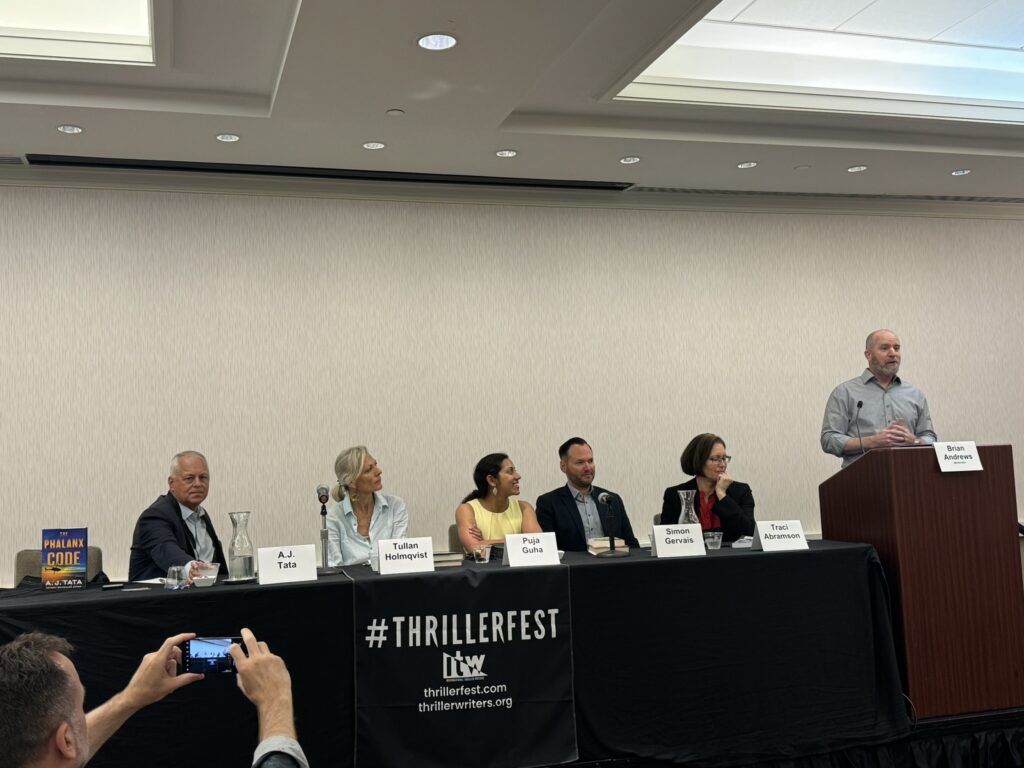
Fans tell Simon Gervais they travel through his books. “If I can bring my readers along, I consider that a win.
“Story can lead to a setting, or setting can lead to a story.”
How do we make a familiar setting fresh? Simon tries to find less travelled spots within established cities. Like a balcony with a uniquely shaped gutter in Venice – good spot for a fight scene.
“Walk with your character – experience the world as they would.”
Ruth Ware
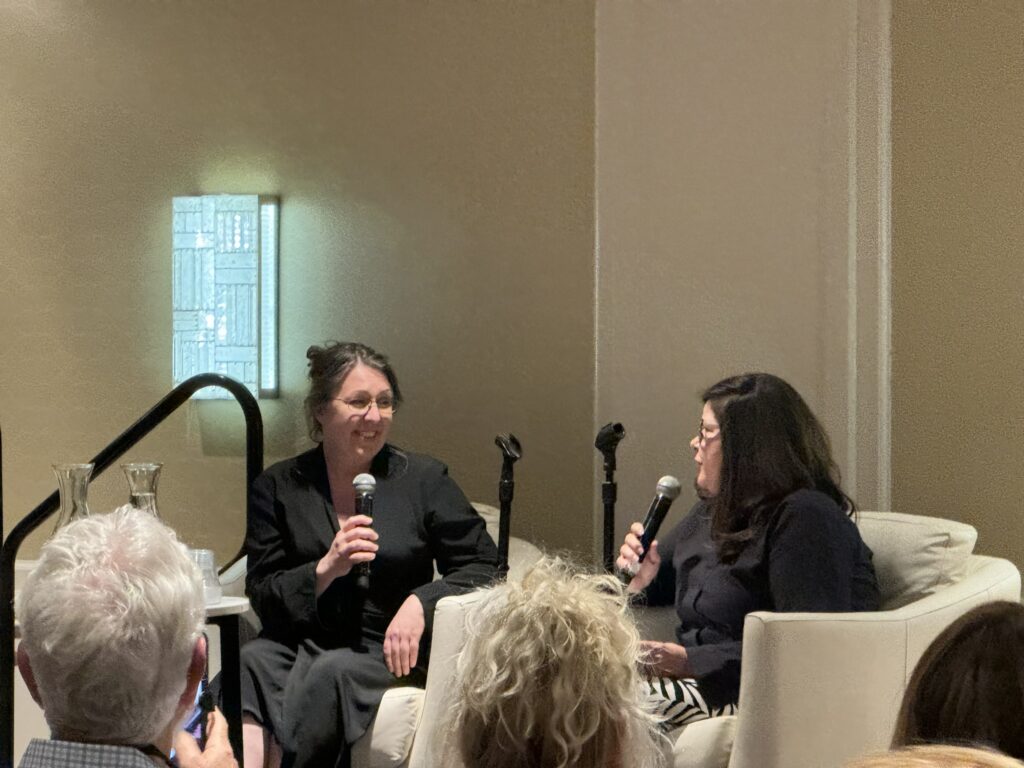
“My parents always made me feel like writing was a great thing to do. They just doubted my ability to make a living from it.”
Suggests authors think of people in a relatable situation, and then have it go terribly wrong.
“[My villains] create a reality in which they had no choice but to do bad things.”
Thriller Masters
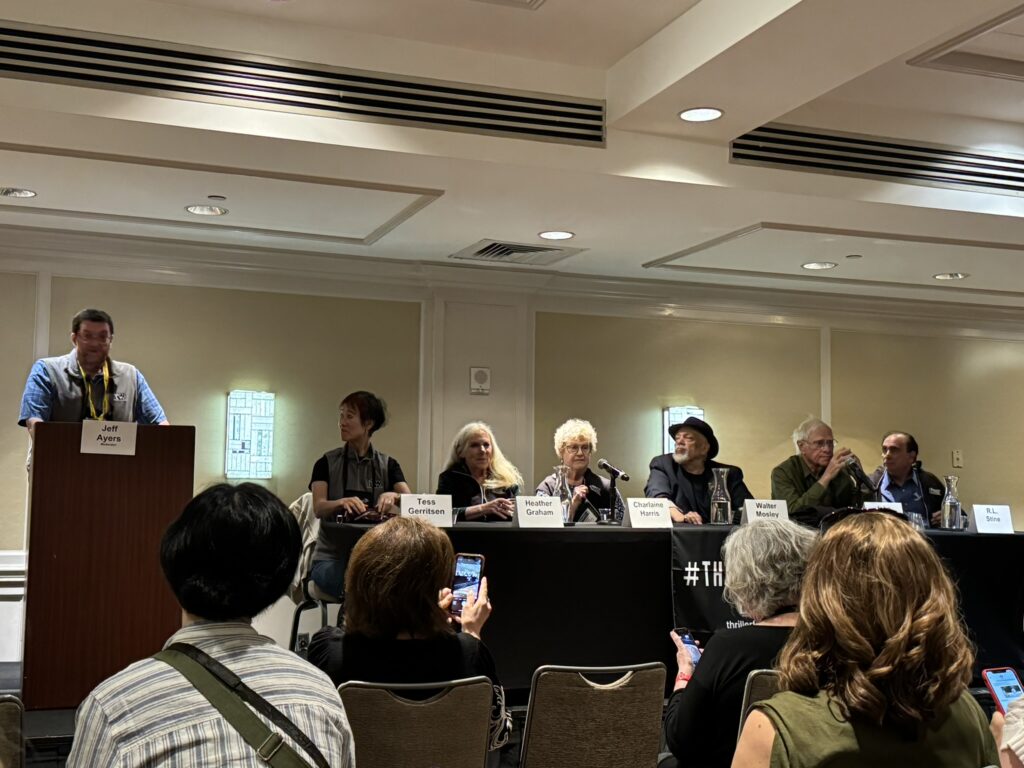
“It took 23 years for the Goosebumps movie to get made.” – R. L. Stein
Why write? “I was worried I’d look back and every day would be the same.” – Walter Mosley
“I don’t know how to do anything else.” Charlaine Harris
“Writing is a real thing we’re doing – and if it’s not real, it’s not worth doing.” – Walter Mosley
“I just like scaring kids.” – R. L. Stein
What did Charlaine think of the HBO adaptation of True Blood? “I loved it all the way to the bank.”
Walter had a manuscript rejected by a publisher – after that same publisher had already published it.
Dennis Lehane
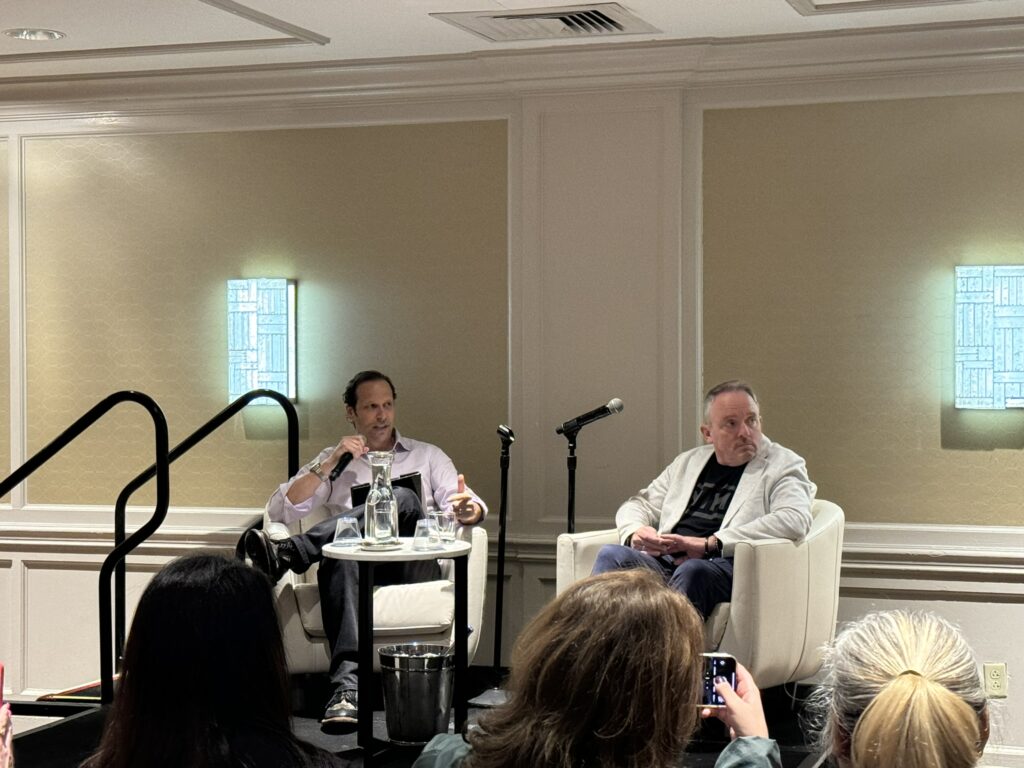
“I never know which book will be a hit… all I can do is write the best book I can write.”
Dennis Lehane doesn’t write wish fulfillment. “No car chases, no winnners.”
“If I’m not afraid, I’m doing something wrong.”
“Story is plot, character, language… all in a soup.”
On screenwriting: “You can’t be precious about anything… I hire the best people I can, and I give them the freedom they need. Have fun – why else are you doing it?”
“I am completely unafraid of failure. I’ve failed before, and I’ll fail again.”
Satisfying your reader
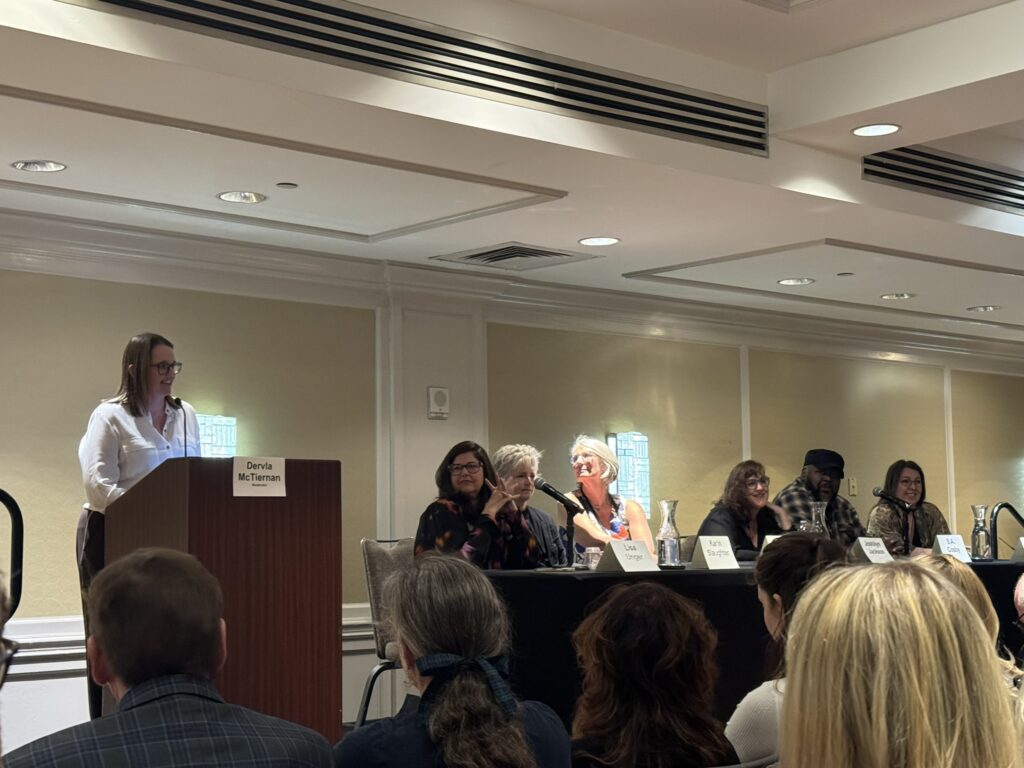
“I don’t think about the reader, I think about the story I’d like to tell.” – Karin Slaughter
“My readers may not get everything they want, but they’ll get everything they need.” – Lisa Unger
“I don’t read reviews anymore.” – Shawn Cosby
“It takes a particular asshole who says something’s not working and not know how to fix it.” – Karin
Louise Penny’s mother said her first chapters were boring – Louise didn’t write again for 10 years.
“Your characters have got to earn this outcome.” – Ruth Ware
“I hate secret twins.” – Shawn
“If you rely on gimmicks, you’re going to run out quickly.” – Karin
“The greatest reward has been the friends [I’ve made].” – Louise
What has writing given, and what has it taken away? “Books have brought money, and taken poverty.” – Shawn. “Success is validation.”
Other Tips and Tricks
I didn’t attend PitchFest this year, but it’s an excellent chance for authors to present their work to agents and publishers – perhaps one of the best in the industry.
I attended each of the cocktail parties, as I found they were a great chance to catch up with other authors and network. Sometimes food is served and sometimes not, so I’m careful to ensure I eat small meals throughout the day so that I don’t arrive with an empty stomach.
Authors are generally friendly, and you can start a conversation with “I really like your work” or “I enjoyed your presentation” – so long as it’s sincere. Don’t be afraid to ask them a question about a story that you’re writing.
I always try to take an hour or two off at some point during the day, as otherwise it’s very easy to get exhausted – and all the panels start to blur together.
As tempting as it is to just stay at the hotel, do try and get out sometimes. It can be as simple as finding a nearby food truck that serves really good dumplings.

I recommend attending the ThrillerFest awards banquet, as it’s one of the highlights of the conference – and another chance to network and support your fellow writers. It’s also three parties in one – the cocktail party, the dinner itself, and the after party.
Everyone tends to stay out late that last night so it doesn’t hurt to book yourself an extra day in New York to recover – or at least ensure that you’re not heading out early the following morning.
And hopefully – when you leave – you bring a bit of inspiration home with you.
